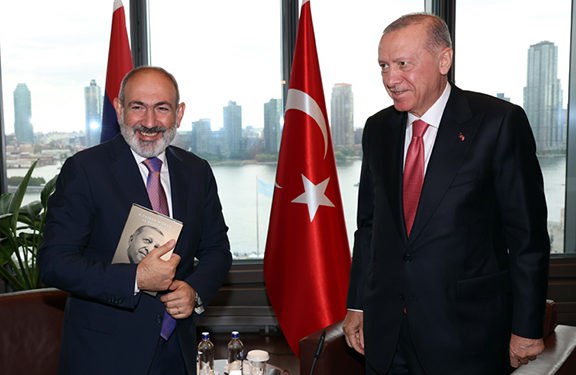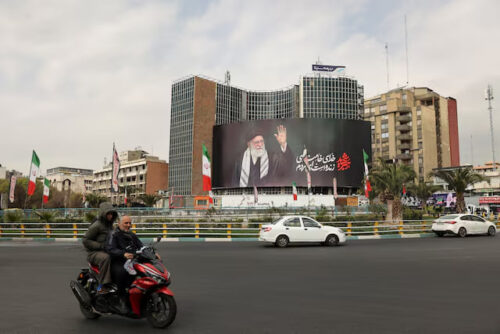
Tarasov: Pashinyan may have asked Erdogan to “intercede” with Aliyev to abandon some “strong demands”
According to some Turkish experts, during the meeting in New York, Armenian Prime Minister Pashinyan may have asked Turkish President Erdogan to intercede with Aliyev to abandon some “strong demands”, the satisfaction of which “could cause a rift in Armenian society, leading to political destabilization in the country”, Russian political scientist Stanislav Tarasov writes.
However, there are important nuances. Yerevan no longer presents itself as Moscow’s strategic ally and a CSTO member. He started actively cooperating with NATO and the EU. Meanwhile, “problems with the West are increasing” in Turkey and Azerbaijan.
At the same time, it cannot be ruled out that Pashinyan is trying to use the “card” of the “Zangezur corridor”—which connects Azerbaijan with Nakhijevan and Turkey—asking for Baku’s agreement to sign a shortened version of the peace treaty.
But Turkey, having invaded the Shanghai Cooperation Organisation and BRICS, does not want to act in this direction, bypassing Russia, just as it does not intend to take relations with Yerevan out of Baku’s control. Thus, Pashinyan’s desire to use the “Turkish card” and start a dialogue with Ankara in the context of Turkey’s relations with the U.S. and the West.
If the Erdogan-Pashinyan meeting in New York is followed by concrete actions, then on a theoretical level, it can be assumed that in the near future Aliyev will change his rhetoric and another interaction mechanism will appear in order to “form an atmosphere of mutual trust” with Pashinyan in order to establish normal relations between the two countries”.
But at this particular moment, such a development of events is unlikely. This is why the public rhetoric of Pashinyan and Erdogan lacks certainty. The “Great Game” continues in the South Caucasus.



